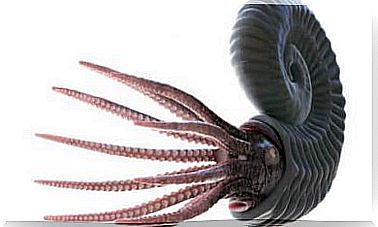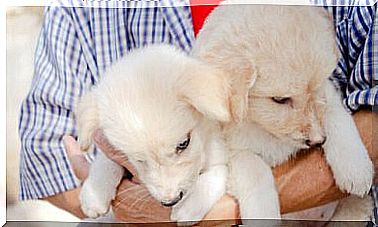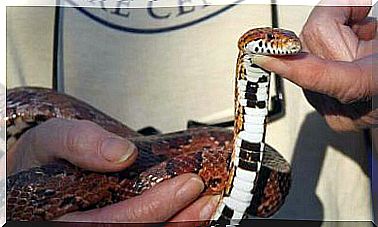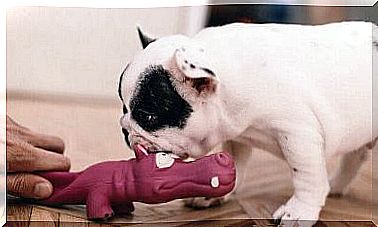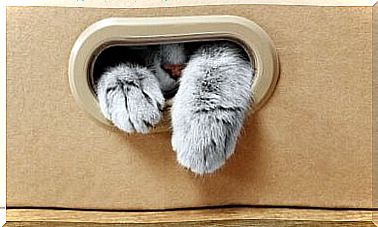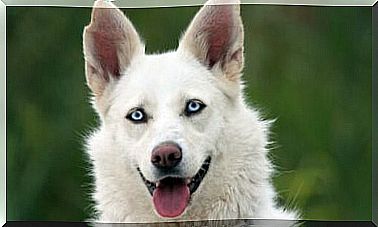Reasons Why Dogs Eat Dirt
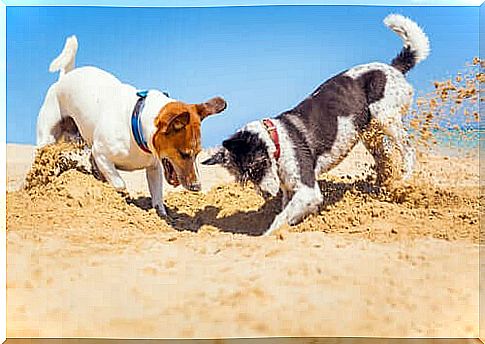
When dogs eat soil, several situations can be occurring, both pathological and behavioral. Avoiding this habit and discovering the reason for its origin is essential to prevent the resulting gastrointestinal disturbances.
Most dogs, especially puppies, are curious about their environment, especially if it’s a natural environment. Often, the reason dogs eat dirt is simple play. So, in addition to ingesting it, they also tend to wallow in mud or puddles.
If this practice is punctual and the amount of land consumed is minimal, there will not be major problems to worry about. However, if the animal chronically eats soil, it may be indicative of an underlying condition.
Causes why dogs eat dirt
Most pathologies associated with ingestion of soil or grass are digestive, as is the case of intestinal inflammation. This disease is one of the most frequent and can become complicated and lead to bleeding and ulceration of the intestine, which leads to secondary anemia. This symptomatology causes a malabsorption of vitamin B, a deficit that the animal will try to alleviate through the soil.
Likewise, there are diseases that, although not strictly digestive, such as hypothyroidism, the presence of parasites, hemorrhagic tumors or chronic kidney disease, can trigger anemia.
Another digestive reason can be a simple stomach pain after eating something inappropriate or in bad condition. Dogs also often turn to plants, which is commonly known as ‘purging’, to induce vomiting and thus flush out the cause of their malaise.
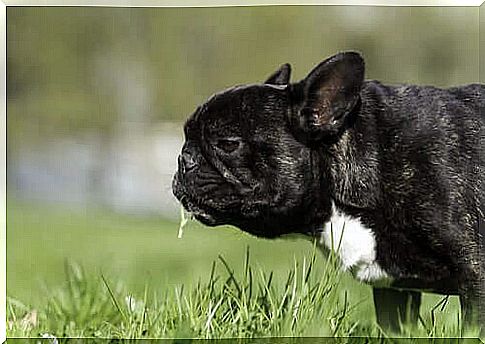
On the other hand, nutritional deficits can be associated with a poor diet, both because of scarcity and inappropriate food formulations. This imbalance will make dogs look to supply their needs for vitamins and minerals in addition to their normal diet.
Finally, misbehavior due to inadequate education can lead the animal to eat dirt. When dogs eat dirt, it can happen that it is just a game or that they actually find something tasty in it, especially if this happens in parks where other dogs have already been. Avoiding this type of practice once detected can prevent chronic behavior and associated health problems.
Consequences of eating dirt
The digestibility of soil is poor, so it tends to compact, obstructing the intestinal tract. This obstruction, in turn, will hinder the normal passage of water and food, causing the animal to show signs of discomfort in a short time.
Swelling of the abdomen, lethargy or dehydration symptoms with dry eyes, mouth and skin are some of the most common symptoms, along with vomiting or constipation.

In less difficult cases, the specialist will recommend the administration of oily substances that facilitate intestinal transit or fluid therapy to promote hydration. When there is a major obstruction, minor surgery may be necessary.
The most common places where dogs eat dirt are parks, beaches and even the home environment if the animal tends to rummage through the plant pots or the cat’s litter box. Therefore, guardians must carefully control their pets’ habits and stop behaviors that can cause serious inconvenience in the future.



